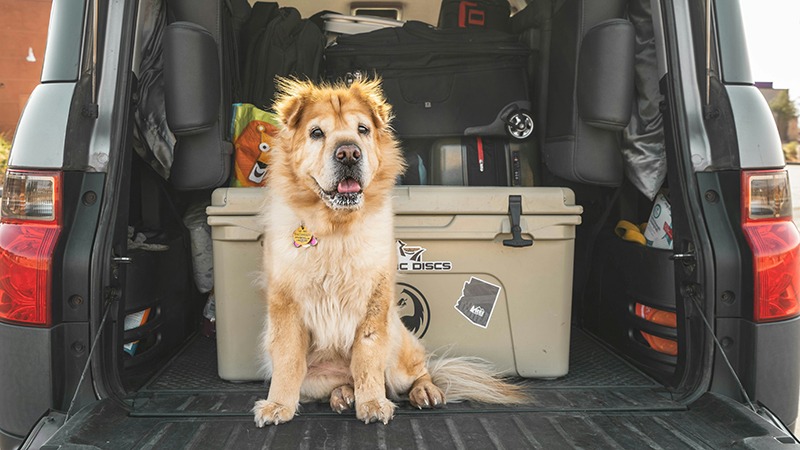Travel
New U.S. Rules for Canadians Travelling with Dogs Begin August 1

New Fido filings could put CDN travellers to the U.S. on a short leash.
Newly released regulations harnessing dog owners who want to take man’s best friend into the U.S. take effect in less than two weeks, and Canadian pet owners are getting hot under the collar.
Starting 01AUG, the U.S. Centers for Disease Control and Prevention (CDC) will start enforcing the regulations. Among the requirements is that all dogs entering the U.S. will have to have a microchip implant and be at least six months old. Owners also need to fill out a CDC Dog Import Form, which can be filled out and submitted online.
The CBC says the form requires basic information about the dog as well as “a clear photograph of the dog showing its face and body.”
The website adds that dogs younger than one year should have the photograph taken within 10 days of arriving at the border.
(Editor’s note: It’s not clear if the CDC will allow photos with a smiling dog, or if border collies will be exempt from the rules.)
Dog owners also must have a Documentation of Canadian-Issued Rabies Vaccination, issued and signed by a Canadian licensed veterinarian, which includes vaccination and microchip information and certifies that the dog has been vaccinated for rabies.
While it was previously announced that Canadian dogs would need certification of rabies vaccination within 30 days of travelling to the U.S., the CBC said that Canadian Health Minister Mark Holland has stated that the U.S. will introduce a specific form for Canada that will allow a dog to enter and re-enter the U.S. for as long as their rabies vaccination is valid — either one or three years — as long as the vaccination was administered in a “rabies-free or low-risk” country.
There could be a grace period, but the rules have unleashed a great deal of worry among Canadian dog lovers who regularly travel to the U.S.
“It’s going to have a huge impact,” Holland said at a news conference in Ottawa this week.
Dr. Ian Sandler, chair of the Canadian Veterinary Medical Association’s national issues committee, told the Toronto Star that the CDC’s rules have “triggered a cascade effect that potentially is going to have a lot of disruption” at the border.
The CBC story said the Canadian government has asked to be exempted from the new rules entirely, arguing that Canada and the U.S. are both free from dog rabies and the restrictions will hurt business and be taxing on people who live near the border.
The Star reports that incoming changes prompted Holland “to push for concessions for Canadians during a trip to Washington last week, with the minister arguing the regulations could snarl both countries’ supply chains, hurt tourism and hospitality industries in border communities, confuse airlines and unfairly target those who rely on service animals.”
Holland said he made good progress in clearing up Canadian concerns and that the concessions significantly improve the situation.
“But it’s not enough.”
VIN News Service also points out the rules could be a problem for Americans bringing their dogs home after a visit to Canada.
“Look, we’ve got a ton of Americans up here right now during the summer,” Holland said, adding that many had dogs and are unaware of the rule. “And they’re gonna be looking to come home with their dog, and what are they gonna do? Right? They’re going to be stuck. They’re not going to be able to go home.”








